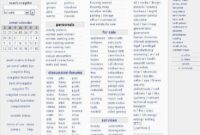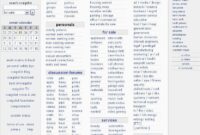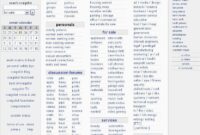1 Ton Pickup Trucks For Sale: Your Ultimate Guide to Heavy-Duty Hauling pickup.truckstrend.com
In the world of pickup trucks, size, power, and capability often define their purpose. Among the various classes, the "1-ton" pickup truck stands as the undisputed king of heavy-duty hauling and towing. These formidable machines are not just bigger versions of their half-ton or three-quarter-ton siblings; they are purpose-built workhorses designed for the most demanding tasks, from pulling massive fifth-wheel RVs to transporting heavy equipment for commercial operations. If you’re searching for "1 Ton Pickup Trucks For Sale," you’re likely in need of serious muscle, and this comprehensive guide will walk you through everything you need to know to make an informed decision.
What Defines a 1-Ton Pickup Truck? Unpacking the Capability
1 Ton Pickup Trucks For Sale: Your Ultimate Guide to Heavy-Duty Hauling
The term "1-ton" is a historical classification, dating back to when these trucks literally had a 2,000-pound (1-ton) payload capacity. Today, modern 1-ton trucks far exceed this, often boasting payload capacities well over 4,000 pounds and towing capabilities that can surpass 30,000 pounds. So, what truly defines them?
- Gross Vehicle Weight Rating (GVWR): This is the maximum permissible weight of the truck, including its own weight, fuel, passengers, and cargo. For 1-ton trucks, GVWR typically starts around 10,000 pounds and can go significantly higher, especially for dual rear wheel (DRW) models.
- Gross Combined Weight Rating (GCWR): This is the maximum permissible weight of the truck, its trailer, and all their contents combined. 1-ton trucks are engineered for extremely high GCWRs, allowing them to pull substantial loads.
- Heavy-Duty Components: Unlike lighter-duty trucks, 1-ton models feature robust frames, reinforced suspension systems (often with leaf springs or advanced air suspensions), larger axles, heavy-duty brakes, and more powerful engine and transmission options. These components are designed to withstand constant stress from heavy loads.
- Engine Options: While gas engines are available, 1-ton trucks truly shine with their powerful diesel engine options, which provide immense torque necessary for heavy towing and hauling.
These characteristics set 1-ton trucks apart from 1/2-ton (e.g., Ford F-150, Ram 1500) and 3/4-ton (e.g., Ford F-250, Ram 2500) models, making them the go-to choice for specific, high-demand applications.
Why Choose a 1-Ton Pickup? Benefits and Use Cases
Investing in a 1-ton pickup is a significant decision driven by the need for unparalleled capability. Here’s why these trucks are indispensable for many:
- Unmatched Towing and Hauling: This is the primary reason. If you’re regularly pulling large fifth-wheel campers, gooseneck trailers with heavy equipment, or multiple tons of materials, a 1-ton truck is designed to do it safely and efficiently.
- Commercial and Industrial Applications: For contractors, landscapers, farmers, and construction companies, a 1-ton truck is often a vital piece of equipment. It can transport tools, materials, and machinery to job sites, acting as a mobile command center and power source.
- Recreational Pursuits: Enthusiasts with large RVs, horse trailers, or heavy boat trailers will find the stability and power of a 1-ton truck invaluable for long-distance travel, especially through challenging terrains.
- Durability and Longevity: Built with robust components, 1-ton trucks are engineered for a long service life, even under strenuous conditions. Their heavy-duty construction often translates to fewer breakdowns when properly maintained.
- Enhanced Safety: When towing at or near a vehicle’s limits, having a truck with ample capacity is crucial for safety. The larger brakes, heavier chassis, and advanced towing technologies in a 1-ton truck provide superior control and stability, reducing the risk of accidents.
Key Manufacturers and Popular Models
The 1-ton pickup market is dominated by the "Big Three" American automakers, each offering highly competitive and capable models:
- Ford Super Duty (F-350): Ford’s F-Series Super Duty trucks, particularly the F-350, are renowned for their towing prowess and available Pro Power Onboard generator system. They offer powerful gas and Power Stroke diesel engine options.
- Ram Heavy Duty (3500): Ram’s 3500 series is famous for its luxurious interiors, advanced technology, and the legendary Cummins Turbo Diesel engine, which delivers immense torque and impressive towing figures.
- Chevrolet Silverado HD (3500HD): The Silverado 3500HD combines rugged capability with user-friendly features. It offers strong gas and Duramax diesel engine options and an array of innovative trailering technologies.
- GMC Sierra HD (3500HD): GMC’s Sierra 3500HD is the upscale counterpart to the Silverado, offering similar mechanicals but with more premium finishes, advanced tech, and exclusive features, appealing to those who desire both capability and refinement.
Each of these manufacturers offers various trim levels, cab configurations, and bed lengths, allowing buyers to customize a truck to their specific needs.
Navigating the Market: New vs. Used 1-Ton Trucks
When searching for "1 Ton Pickup Trucks For Sale," you’ll face the decision between buying new or used. Each option presents distinct advantages and disadvantages:
Buying a New 1-Ton Truck:
- Pros: Latest technology, full manufacturer warranty, customizable options, often better financing rates, no previous wear and tear.
- Cons: Higher initial purchase price, significant depreciation in the first few years.
- Tips: Explore manufacturer incentives and rebates, consider ordering a custom build to get exactly what you need, and don’t be afraid to negotiate.
Buying a Used 1-Ton Truck:
- Pros: Significantly lower purchase price, less depreciation, potentially more features for the money, proven reliability for certain models.
- Cons: No manufacturer warranty (or limited), potential for hidden mechanical issues, previous wear and tear, limited customization options.
- Tips:
- Vehicle History Report: Always get a CarFax or AutoCheck report to check for accidents, flood damage, salvage titles, and service history.
- Professional Inspection: Have a trusted mechanic perform a pre-purchase inspection, especially for diesel engines or high-mileage trucks.
- Check for Modifications: Be wary of heavily modified trucks, as aftermarket parts can sometimes lead to unforeseen issues if not installed correctly.
- Rust Inspection: Thoroughly inspect the frame, suspension components, and body panels for rust, especially if the truck comes from a snowy climate.
- Service Records: Request detailed service records to ensure the truck has been properly maintained.
Important Considerations Before Buying
Before you commit to a 1-ton pickup, meticulously evaluate these factors to ensure you’re getting the right truck for your needs and budget:
- Intended Use: Be precise about what you will be towing and hauling. Know the exact weight of your largest trailer and cargo. This will dictate the necessary payload and towing capacity. Don’t overbuy if a 3/4-ton will suffice, but definitely don’t underbuy if you need max capability.
- Engine Type (Diesel vs. Gas):
- Diesel: Offers superior torque for heavy towing, better fuel economy (especially when loaded), and often a longer lifespan. However, they have a higher initial cost, more expensive maintenance, and can be slower to warm up in cold weather.
- Gas: Lower initial cost, less expensive maintenance, quicker warm-up, and often quieter. They consume more fuel, especially when towing heavy loads, and produce less torque.
- Drivetrain (2WD vs. 4WD):
- 2WD (Two-Wheel Drive): Lighter, slightly better fuel economy, lower cost. Sufficient for most on-road towing.
- 4WD (Four-Wheel Drive): Essential for off-road use, slippery conditions, or launching boats on slick ramps. Adds weight, cost, and slightly reduces fuel economy.
- Cab Configuration:
- Regular Cab: Two doors, typically seating for 2-3. Best for maximum bed length and lowest cost.
- Extended Cab (Quad Cab/SuperCab): Four doors (rear doors often smaller), some rear seating. A compromise for occasional rear passengers.
- Crew Cab (Mega Cab/SuperCrew): Full four doors, spacious rear seating. Ideal for families or work crews, but increases wheelbase and reduces bed length for a given overall length.
- Bed Length (Short vs. Long Bed):
- Short Bed (approx. 6.5 ft): More maneuverable, easier to park.
- Long Bed (approx. 8 ft): Max cargo capacity, better for fifth-wheel hitches (more clearance from cab).
- Single Rear Wheel (SRW) vs. Dual Rear Wheel (DRW) "Dually":
- SRW: One tire per side on the rear axle. More common, better maneuverability, less expensive. Sufficient for most heavy towing needs.
- DRW (Dually): Two tires per side on the rear axle (four total on rear). Offers maximum stability, significantly higher payload and towing capacities, and better tire load distribution. Wider stance, higher purchase cost, more tires to replace.
- Towing Packages & Features: Look for integrated trailer brake controllers, heavy-duty cooling systems, auxiliary transmission coolers, trailer sway control, trailer backup assist, and advanced camera systems. These features significantly enhance safety and ease of use.
- Budget & Running Costs: Beyond the purchase price, factor in insurance, fuel costs (especially for diesel), maintenance (tires, oil changes, DEF for diesels), and potential repairs. 1-ton trucks are more expensive to operate than lighter vehicles.
Tips for Finding the Best Deal
- Online Research: Utilize manufacturer websites, dealer inventories (new and used), and online classifieds (e.g., AutoTrader, Cars.com, Facebook Marketplace) to compare prices and features.
- Test Drive Thoroughly: Don’t just drive around the block. If possible, test drive with a trailer similar to what you’ll be towing to truly assess its capability and your comfort level.
- Negotiate: Always negotiate the price. Research average selling prices for similar models in your area.
- Timing: Look for deals at the end of the calendar year or model year when dealerships are trying to clear inventory. Sometimes, purchasing the previous generation model after a redesign can also yield significant savings.
- Financing: Shop around for financing options from banks, credit unions, and the dealership to secure the best rates.
Challenges and Solutions
Owning a 1-ton truck comes with unique challenges, but most have practical solutions:
- Fuel Economy: These are heavy vehicles, and fuel consumption can be high, especially when loaded.
- Solution: Consider a diesel engine for better efficiency under load. Plan routes to avoid excessive idling or stop-and-go traffic. Maintain proper tire pressure.
- Maneuverability and Parking: Their sheer size can make navigating tight spaces or parking lots challenging.
- Solution: Practice driving in various conditions. Utilize available parking sensors, surround-view cameras, and blind-spot monitors. Be prepared to park further away from building entrances.
- Maintenance Costs: Heavy-duty components and diesel engines can lead to higher maintenance and repair costs.
- Solution: Adhere strictly to the manufacturer’s maintenance schedule. Budget for routine service. Learn to perform simple DIY tasks like oil changes to save money.
- Initial Purchase Price: 1-ton trucks represent a significant investment.
- Solution: Explore used options, consider lower trim levels, or finance strategically. Remember, it’s an investment in capability.
1 Ton Pickup Trucks For Sale: Estimated Price Guide
Please note that these are estimated ranges and actual prices vary significantly based on trim level, options, condition, mileage, regional market demand, and current incentives. New truck prices are typically MSRP ranges, while used prices are for models roughly 5-10 years old.
| Manufacturer | Model | Estimated Base MSRP Range (New) | Estimated Used Price Range (5-10 years old) | Key Features (General) |
|---|---|---|---|---|
| Ford | F-350 Super Duty | $45,000 – $90,000+ | $25,000 – $60,000+ | Power Stroke Diesel, Pro Power Onboard, Tow Tech |
| Ram | 3500 Heavy Duty | $47,000 – $95,000+ | $25,000 – $65,000+ | Cummins Turbo Diesel, Luxury Interiors, Air Suspension |
| Chevrolet | Silverado 3500HD | $46,000 – $90,000+ | $25,000 – $60,000+ | Duramax Diesel, Multi-Flex Tailgate, Advanced Trailering System |
| GMC | Sierra 3500HD | $48,000 – $95,000+ | $28,000 – $65,000+ | Duramax Diesel, Denali/Denali Ultimate Trims, Premium Materials, ProGrade Trailering System |
Frequently Asked Questions (FAQ)
Q: What does "1-ton" actually mean in today’s trucks?
A: Historically, it meant a 2,000-pound payload capacity. Today, it signifies a heavy-duty truck with a GVWR (Gross Vehicle Weight Rating) typically above 10,000 pounds and significantly higher payload and towing capacities (often 4,000+ lbs payload, 20,000+ lbs towing). It’s more of a class designation than a literal weight limit.
Q: Do I really need a 1-ton truck, or will a 3/4-ton suffice?
A: It depends entirely on your maximum towing and payload requirements. If your heaviest trailer or cargo consistently pushes the limits of a 3/4-ton truck (e.g., large fifth-wheel RVs, heavy equipment), then a 1-ton truck is safer and more capable. Always check the specific GVWR, GCWR, payload, and towing capacities of the truck you’re considering against your needs.
Q: Is a diesel or gas engine better for a 1-ton pickup?
A: For maximum towing and hauling, especially over long distances or up steep grades, a diesel engine is generally superior due to its high torque output and better fuel efficiency under load. Gas engines are typically cheaper to buy and maintain, making them suitable for lighter loads or less frequent heavy use.
Q: What’s the difference between SRW and DRW (Dually)?
A: SRW (Single Rear Wheel) trucks have one wheel on each side of the rear axle. DRW (Dual Rear Wheel), or "Dually," trucks have two wheels on each side of the rear axle, providing increased stability, higher payload, and greater towing capacity. Dually trucks are wider and more expensive but are essential for the heaviest loads.
Q: How much does insurance cost for a 1-ton truck?
A: Insurance costs for 1-ton trucks can be higher than for lighter vehicles due to their higher value, potential for greater damage in an accident, and their commercial-like usage. Factors like your driving record, location, and the specific model and coverage will influence the price. It’s best to get multiple quotes before purchasing.
Q: Can I use a 1-ton truck as a daily driver?
A: Yes, but be prepared for its size. Modern 1-ton trucks offer comfortable interiors and many creature comforts, making them suitable for daily driving. However, their large size can make parking and navigating tight city streets challenging, and fuel economy will be lower than a smaller vehicle.
Conclusion
The search for "1 Ton Pickup Trucks For Sale" leads you to a class of vehicles engineered for extraordinary capability. Whether you’re a commercial operator needing to move heavy equipment, or an RVer dreaming of exploring the country with a massive fifth-wheel, a 1-ton pickup provides the power, stability, and durability required. By understanding their unique characteristics, carefully evaluating your specific needs, and considering the market options, you can confidently choose the heavy-duty workhorse that will serve you reliably for years to come. Remember, the right 1-ton truck isn’t just a purchase; it’s an investment in your productivity and peace of mind.






